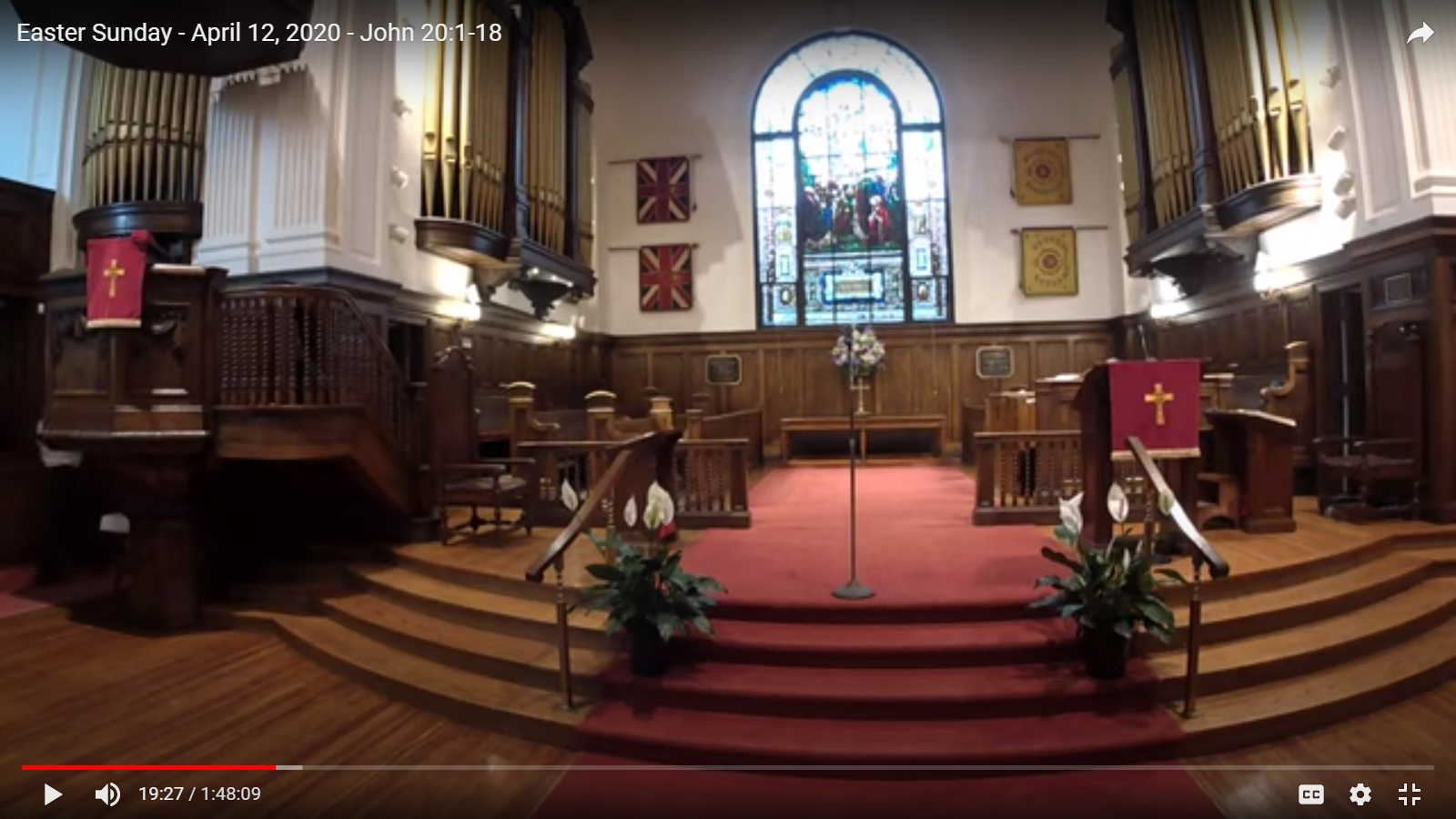During the COVID-19 coronavirus pandemic, our church has of necessity made the move to an online presence. We have had a YouTube channel for a few years now, so the technical infrastructure was already in place to permit this. For the past several weeks, we have worshipped from home, tuning in from our televisions while seated on our living room sofas, whose cushions are more comfortable than the 112-year-old wooden pews in our sanctuary. We even celebrated the Lord’s Supper on Palm Sunday, each of us providing bread and wine and having it consecrated from 2 kilometres away by our minister. It’s not the same, of course, but it will have to do for now. We can be thankful to God that our technical means have come so far that we can worship in this way, which we would not have been able to do even twenty years ago.
It has occurred to me that the current quarantine may work some permanent changes in the way we live our lives. The shift to distance working and learning, already underway, may be accelerated. Families may not have to be uprooted to follow the job market as more people will work from home, travelling when necessary, their lives and communities otherwise undisturbed. This will be a very good thing, in my view.
However, the effect on our churches may be more negative over the long term. A few years ago I wrote a short article suggesting that the invention of the automobile may have worked the greatest revolution in ecclesiology in two millennia, as it transformed church members into spiritual consumers willing to drive long distances to find a church they believe to be a good fit for them.
The territorial parish cannot easily withstand this new ecclesiology. Near universal automobile ownership has made Christians of virtually every tradition into consumers of perceived spiritual goods. It is de rigueur these days to claim to be “spiritual but not religious,” because religion implies binding obligation within a larger authoritative community, while spirituality leaves the individual in control and need not entail a transformed life and redirected affections. Everyone becomes a seeker and churches are compelled to attract potential members by whatever means necessary. Why? Because no one has to show up, after all. They can easily drive past the nearest church building and find another congregation that better meets their subjective needs. Or they can simply stay home and sleep late. The net effect is that the institutional church has no more authority than its members are willing to grant it. In other words, it is one more voluntary association not essentially different from the local birdwatching society.
Quarantine now means we can attend church and stay home and sleep late. Who could argue with that? In the run-up to Easter, I began considering all of the churches that would be holding online worship services in our time zone. Perhaps I should try Tenth Presbyterian in Philadelphia or Redeemer Presbyterian in New York. What harm could be done if, just once, I “attended” another church rather than our own congregation? A quick google search would surely turn up hundreds of churches in the United States and Canada with which I could worship. Why not?
In the end I decided this would not be right, as I would be making myself a consumer of church rather than a member of the community of the faithful at worship, subject to its ecclesiastical authority. Yes, the shift to online worship is necessary during this extraordinary time, but I pray that we resist the temptation to make this a permanent part of life and risk the possibility that Christians will worship from home from now on, gradually drifting away from the church altogether. Church is a community of real people gathering in real places celebrating their salvation in Christ in tactile ways. As we cope with an emergency that is compelling us to live with the unusual, let us make every effort not to forget this.
















